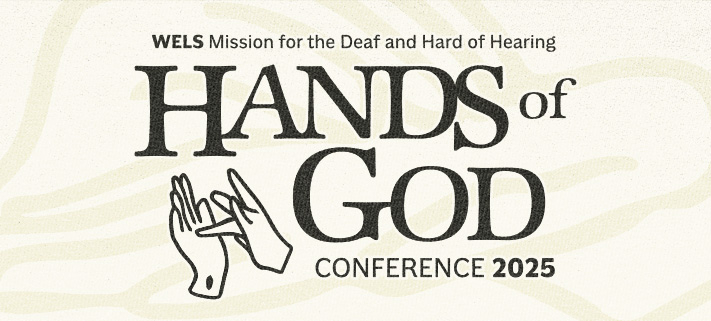Gospel Hands helps for worship
A new website called Gospel Hands is now available from WELS Special Ministries. This resource, produced by the Mission for the Deaf and Hard of Hearing (MDHH), aims to share the gospel and better tell the message of Jesus to all who are deaf.
Gospel Hands provides videos of interpreters demonstrating the signs for more than 700 religious words and concepts, including a contextual sentence and a Scripture reference, if applicable. In addition, each sign is demonstrated from the front and the side. The signs are listed alphabetically and searchable by category.
Gospel Hands is the culmination of a three-year project by the committee. Back in 2003, the MDHH produced a book of religious signs for interpreters called Sign to the Lord a New Song. But knowing that a printed book of religious signs is no longer practical, the MDHH utilized the blessings of technology to record sign videos for this new website. Committee members collaborated on choosing the signs and context for each word.
Mrs. Verna Weigand, a religious sign language interpreter and a long-standing member of the MDHH committee, has been involved in Gospel Hands from the beginning. She is thrilled about this new resource and also appreciates that churches have become more open to using interpreters in worship and providing other resources like words on AV screens, hearing loops, and printed sermons for those with hearing loss. “It’s really important that [those with hearing loss] know congregations will assist them and not just say, ‘We don’t offer that here,’” she says.
Weigand, a member at Mt. Calvary, Waukesha, Wis., notes that Gospel Hands is growing as new resources, like videos of signed worship services, continue to be added. Mrs. Susan Willems, a member at Christ the Lord, Brookfield, Wis., is thrilled about this expanding resource because it helps her and her family members share their faith with her one-year-old nephew, Parker, who has been deaf from birth. “We learn sign language so we can include Parker in every aspect of our family,” she says. “You also never know when the opportunity will present itself to share Jesus with someone who is deaf or hard of hearing.”
Because it’s estimated that 85 to 90 percent of those with hearing loss don’t attend church because of a lack of religious resources for them, Rev. Joel Gaertner, director of the Commission on Special Ministries, knows what a valuable faith resource Gospel Hands is. “The work to put together an online religious sign language dictionary demonstrates the dedication of the members of the MDHH committee to provide as many resources as possible to help share the gospel with the deaf and hard of hearing community,” he says. “It’s wonderful to see how they are using technology to make this website possible.”
Learn more at gospelhands.net and find additional resources at wels.net/deaf-and-hard-of-hearing.
Read more about Gospel Hands in the May issue of Forward in Christ magazine.

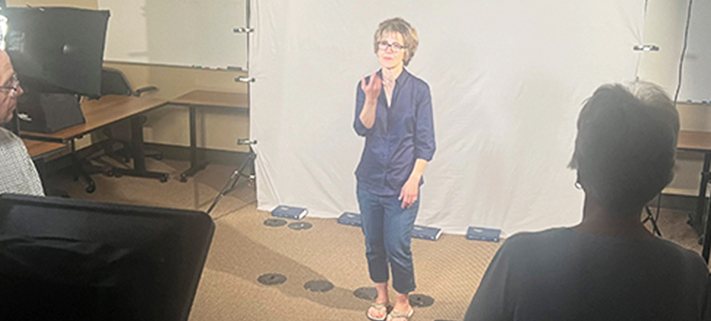
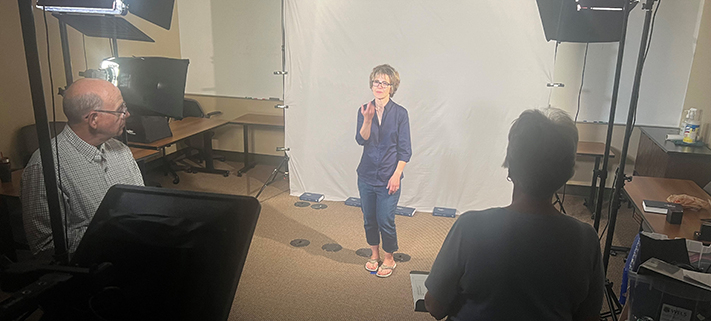
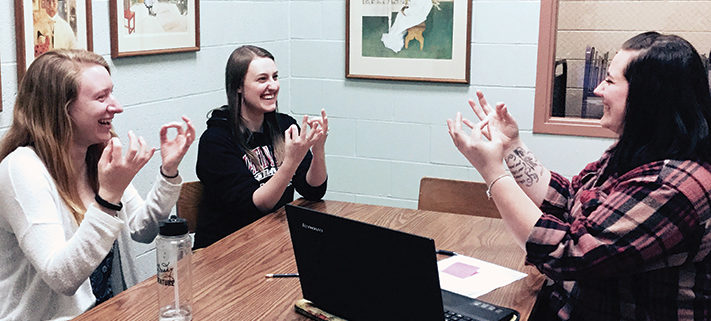
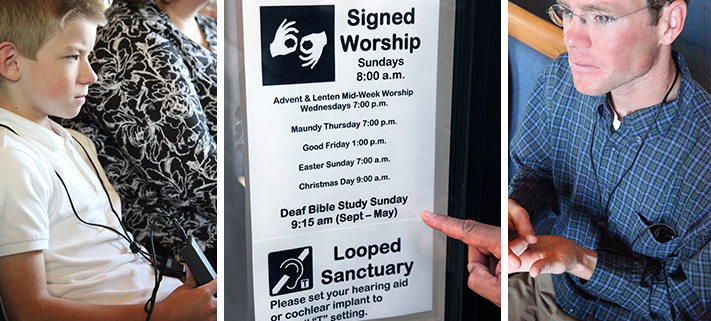
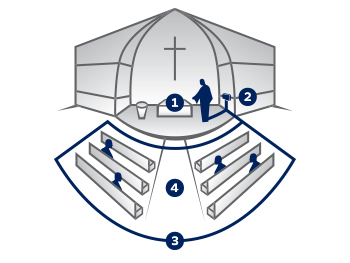 Thankfully, modern technology has solutions to alleviate this problem. One of these is to install a hearing loop in your church. A hearing loop works with people’s hearing aids to provide a clearer sound directly into their ears. Watch this
Thankfully, modern technology has solutions to alleviate this problem. One of these is to install a hearing loop in your church. A hearing loop works with people’s hearing aids to provide a clearer sound directly into their ears. Watch this 